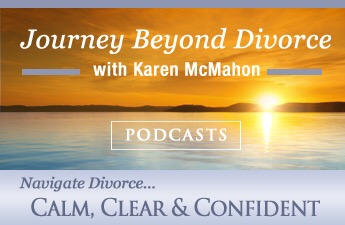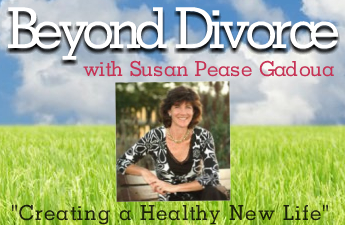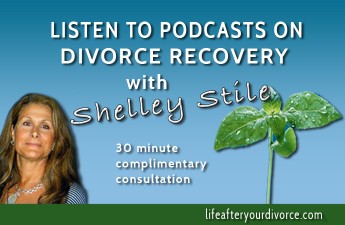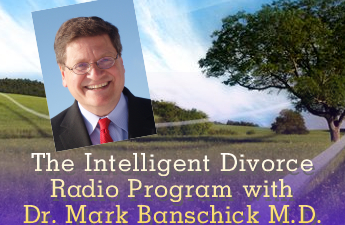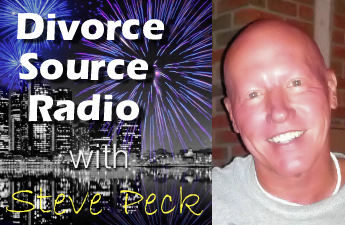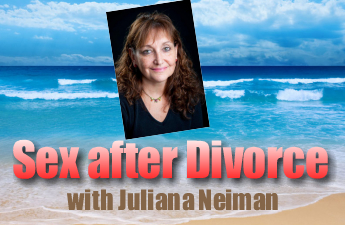Archive for The Intelligent Divorce
Needy and Clingy People
Posted by: | Comments In this episode of The Intelligent Divorce with Mark Banschick, M.D., we discuss needy and clingy personality types. Have you been with this type of person or was it you that displayed these traits?
In this episode of The Intelligent Divorce with Mark Banschick, M.D., we discuss needy and clingy personality types. Have you been with this type of person or was it you that displayed these traits?
Neediness Pushes People Away: When the relationship is no longer in the “whirlwind romantic” stage, you may feel the need to cling too much in order to maintain what you had. “What’s wrong?” “I feel like you are not there.” Anxiety occurs because you sense a change, but you may be responding to something completely normal. It’s a burden to have to deal with a clingy lover. “Everything is fine.” Will you just stop it?” The irony is that as you push your concerns forward, you partner may just decide it is too much to deal with.
 And if you’re the clingy person and you are involved with a narcissist, this can turn explosive. There is no shame to admit that you are too clingy. And there are usually good reasons why you became that way; like anxieties in early childhood. Good relationships are worth a lot, so if you’ve got a tendency to be too needy, do something about it. Work on overcoming the wounds of the past, and make better relationships in the future.
And if you’re the clingy person and you are involved with a narcissist, this can turn explosive. There is no shame to admit that you are too clingy. And there are usually good reasons why you became that way; like anxieties in early childhood. Good relationships are worth a lot, so if you’ve got a tendency to be too needy, do something about it. Work on overcoming the wounds of the past, and make better relationships in the future.
While it’s fine to test the temperature of a relationship, be aware that your neediness may undermine a stable bond between you and your partner. And, if you are that partner, you may want to listen to this show and have some empathy. There’s a lot that can be done to keep your love fresh, with the help of counseling. This episode will help you learn more about needy and clingy people.
For more on Dr. Mark Banschick, visit: www.TheIntelligentDivorce.com.
Podcast: Play in new window | Download
What Makes Us Crazy During Divorce and The Need to Protect Your Children
Posted by: | Comments In this episode of The Intelligent Divorce, with Mark Banschick, M.D., we discuss what it is about divorce that makes seemingly “normal” people behave in crazy, and even violent, ways?
In this episode of The Intelligent Divorce, with Mark Banschick, M.D., we discuss what it is about divorce that makes seemingly “normal” people behave in crazy, and even violent, ways?
 Dr. Banschick explains that it’s quite common for divorcing individuals to feel like they are the victim. This can even be the case for people who have had an affair, because they might see the reason they did so was that their partner wasn’t paying attention to them.
Dr. Banschick explains that it’s quite common for divorcing individuals to feel like they are the victim. This can even be the case for people who have had an affair, because they might see the reason they did so was that their partner wasn’t paying attention to them.
When relationships go wrong, your partner might be pushing all of your hot buttons, setting you off into a rage to the point of verbal or domestic violence. We’ll explore the role control and narcissistic behavior can play in this harmful behavior during divorce.
Above all, divorcing couples should put their children first and protect their innocence by not dragging them into their relationship problems. It is vital that you learn to manage your emotions in order to avoid verbal and physical abuse and manipulation, for the sake for your children and your own peace of mind.
For more on Dr. Mark Banschick, visit: www.TheIntelligentDivorce.com
Podcast: Play in new window | Download
Dealing with the Pain of Divorce
Posted by: | Comments In this episode of The Intelligent Divorce with Mark Banschick, M.D., we discuss pain. Whether physical or through something like divorce, pain is a force to be reckoned with.
In this episode of The Intelligent Divorce with Mark Banschick, M.D., we discuss pain. Whether physical or through something like divorce, pain is a force to be reckoned with.
 Dr. Banschick shares his personal story of a recent back injury that left him incapable of doing things he used to take for granted, such as walking, showering, or making a cup of coffee. Dr. Banschick talks about the Stoics. Stoicism was founded in Athens by Zeno of Citium in the early3rd century BC. The Stoics taught that destructive emotions resulted from errors in judgment, and that a sage, or person of “moral and intellectual perfection,” would not suffer such emotions. Said another way, Stoics believed that bad things can happen to good people and that life can be unfair.
Dr. Banschick shares his personal story of a recent back injury that left him incapable of doing things he used to take for granted, such as walking, showering, or making a cup of coffee. Dr. Banschick talks about the Stoics. Stoicism was founded in Athens by Zeno of Citium in the early3rd century BC. The Stoics taught that destructive emotions resulted from errors in judgment, and that a sage, or person of “moral and intellectual perfection,” would not suffer such emotions. Said another way, Stoics believed that bad things can happen to good people and that life can be unfair.
In this program, Dr. Banschick talks about:
- Getting through the pain of illness or divorce
- Learning to value what you have, not what you’ve lost
- The Spirituality of pain
- Thinking twice before you move once
- And much more.
This is a powerful program delivered by Dr. Banschick, and if you would like more information on his work and books, visit: www.TheIntelligentDivorce.com
Podcast: Play in new window | Download
Blended Families - Part 3
Posted by: | Comments This is part three on Blended Families with Dr. Mark Banschick of The Intelligent Divorce.
This is part three on Blended Families with Dr. Mark Banschick of The Intelligent Divorce.
Divorce doesn’t end with the divorce papers being signed. As you move on in life and begin new relationship, this can become an issue with your kids and or the children of your new partner.
In this final episode of Blended Families, Dr. Banschick shares advice on how to protect the innocence of your children and create a better blend of step-parenting.
For more on Dr. Banschick, visit: www.TheIntelligentDivorce.com.
Podcast: Play in new window | Download
Blended Families Part Two
Posted by: | Comments In this episode of The Intelligent Divorce, Dr. Mark Banschick continues his series on blended families.
In this episode of The Intelligent Divorce, Dr. Mark Banschick continues his series on blended families.
Blended families or step families, face challenges above and beyond that of the traditional family. Dr. Banschick addresses issues facing both parents and children.
While changes to family structure require some adjustment time for everyone involved, with the right guidance and realistic expectations, most blended families are able to work out their growing pains and live together successfully. Open communication, positive attitudes, mutual respect, and plenty of love and patience all have an important place in creating a healthy blended family.
For more on Dr. Banschick, visit: www.TheIntelligentDivorce.com.
Podcast: Play in new window | Download
Blended Families Part 1 - The Not So Blended Family
Posted by: | Comments(Listener Note: This is part one of a three-part series. To find the other episodes, search “Intelligent Divorce” from the Divorce Source Radio “search” bar.)
 In this episode of The Intelligent Divorce with Mark Banschick, M.D., we begin a three part series on Blended Families.
In this episode of The Intelligent Divorce with Mark Banschick, M.D., we begin a three part series on Blended Families.
 Stepfamilies, also known as blended families, are more of a norm now than ever, with 65% of remarriages including children from previous relationships. When families “blend” to create stepfamilies, though, things rarely progress smoothly. Some children may resist the many changes they face, while parents may become frustrated or disappointed when the new family doesn’t function like their previous family.
Stepfamilies, also known as blended families, are more of a norm now than ever, with 65% of remarriages including children from previous relationships. When families “blend” to create stepfamilies, though, things rarely progress smoothly. Some children may resist the many changes they face, while parents may become frustrated or disappointed when the new family doesn’t function like their previous family.
While changes to family structure require some adjustment time for everyone involved, with the right guidance and realistic expectations, most blended families are able to work out their growing pains and live together successfully. Open communication, positive attitudes, mutual respect, and plenty of love and patience all have an important place in creating a healthy blended family.
For more on Dr. Banschick, visit: www.TheIntelligentDivorce.com.
Podcast: Play in new window | Download
Food and Eating Disorders During Divorce
Posted by: | Comments Food plays an important role in our lives, as both sustainment and enjoyment. When going through a divorce, many people’s eating habits change. Some people are so depressed, they don’t feel like eating at all. Others look at food as something that comforts, and they find themselves over-eating as a means of feeling better.
Food plays an important role in our lives, as both sustainment and enjoyment. When going through a divorce, many people’s eating habits change. Some people are so depressed, they don’t feel like eating at all. Others look at food as something that comforts, and they find themselves over-eating as a means of feeling better.
In this episode of The Intelligent Divorce with Mark Banschick, M.D., we unwrap the truth about food and eating disorders. Eating disorders are one of the psychiatric illnesses that result in a number of medical complications, such as electrolyte imbalances, osteoporosis, and dental problems, as well as the many diseases related to obesity.
In this program, you’ll learn the importance of eating healthy during one of the most stressful times in your life. Dr. Banschick also educates us on the signs that you may have an eating disorder.
For more on Dr. Banschick visit: www.TheIntelligentDivorce.com
Podcast: Play in new window | Download
Is Your Ex a Narcissist or Just an Asshole?
Posted by: | Comments Narcissism used to be recognized as a mental disorder, according to the Diagnostic and Statistical Manual of Mental Disorders, or DMS, Manual. In the revised DMS-Five edition, narcissism will no longer be considered a mental disorder, prompting the question, “If my ex isn’t a certifiable narcissist, is he/she just an asshole?” Are these labels one and the same?
Narcissism used to be recognized as a mental disorder, according to the Diagnostic and Statistical Manual of Mental Disorders, or DMS, Manual. In the revised DMS-Five edition, narcissism will no longer be considered a mental disorder, prompting the question, “If my ex isn’t a certifiable narcissist, is he/she just an asshole?” Are these labels one and the same?
Dr. Banschick breaks it down for us and explains narcissism as we once knew it. He then explains how one may not be a narcissist, but rather, a selfish, self-centered asshole. If you think you have been dealing with this type of person, this is a show for you.
For more information on Dr. Banschick, visit: www.TheIntelligentDivorce.com.
Podcast: Play in new window | Download
Does Your Life have Meaning & Purpose? - How Relationships Work
Posted by: | CommentsOn this episode of The Intelligent Divorce with Mark Banschick, M.D., Dr. James Hollis joins us and provides insight into our lives and relationships.
James Hollis, Ph.D., taught Humanities for 26 years in various colleges and universities before retraining as a Jungian analyst at the Jung Institute of Zurich, Switzerland. He is a licensed Jungian analyst in private practice, in Houston, Texas, where he is also Executive Director of the Jung Educational Center of Houston. Dr. Hollis has published eleven books with total sales well over 100,000 copies, the most recent being Finding Meaning in the Second Half of Life (Gotham Books/Penguin).
What is your life’s purpose, and does it have meaning? What happens when we get off purpose? Dr. Hollis helps us understand how we can be our worst enemy. Much of our current unrest can be attributed to our experiences as children and young adults. The paradox is that the adaptations that were necessary during childhood often stand as the imprisoning behaviors and values later in life.
Have you ever asked yourself the question, “If I’m doing all the right things, why doesn’t it feel right inside?” How do we inherit our past, and how is it affecting our current life? These questions, as well as thoughts on marriage and relationships, are discussed in this episode.
Podcast: Play in new window | Download
Have You Suffered Trauma from Divorce?
Posted by: | CommentsIn this episode of The Intelligent Divorce with Mark Banschick, M.D., we discuss Trauma. Most of us has heard of Post Traumatic Stress Disorder, a severe form of trauma. This is triggered by a severe event such a car accident, or the trauma of a battlefield.
We’re going to discuss the most common form, Complex Trauma, and see how it can creep into our relationships. Complex trauma can occur as a result of domestic violence or from suffering a trauma at an early age and now in adulthood, issues trigger past trauma. So the question is, have you been traumatized and if so, is there treatment available?
Once you recognize your triggers you can begin the process of detoxifying the trauma. Dr. Banschick believes that traumas can be treated with much success and offers hope for a peaceful future.
Podcast: Play in new window | Download





